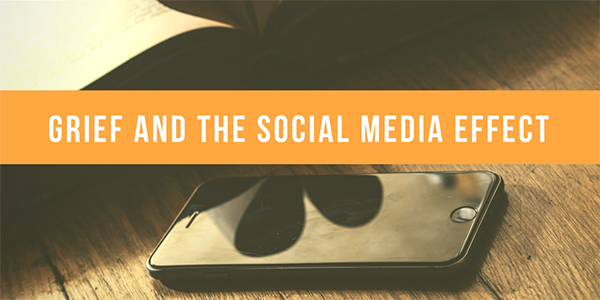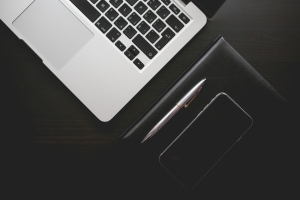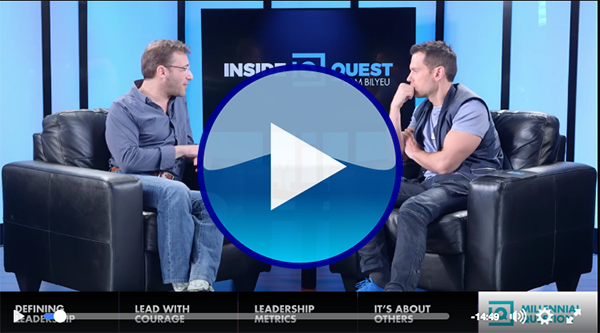
I’ve been using social media for far longer than I care to admit. I was attending one of those Boston-area colleges for grad school shortly after Mark Zuckerberg created Facebook in a Harvard dorm room. I was using something called Friendster at the time to stay in touch with a lot of my undergrad friends. Then, one day, one of my co-workers at my work-study job, sent me an invite to The FaceBook, as it was called back in the early days. I was like, “What the heck is this? It’s never going to catch on…”
Now look…
Zuckerberg has created a worldwide phenomenon that people everywhere can’t live without. It’s almost as common as email or a phone number to have a Facebook page these days. People set them up for their children as soon as they’re born so they can have a recollection years later of their birth and every other milestone in between.
Shortly after I earned my Master’s degree, I started working at one of the top children’s hospitals in the country. It was only supposed to be a temporary position. However, they saw my experience with social media (Facebook, Twitter, YouTube etc.) and helped me find a niche as one of the earliest “social media managers” before that was even really a job title, like it commonly is today at companies, universities and organizations all over the globe. Since then, I’ve managed a hugely popular online community for a large nonprofit organization that helps individuals living with a rare disease, along with my own personal social media “brand” through blogs and videos, Tweets and Instagrams. I’ve seen directly how social media can be used as a tool for individuals living with chronic illness to connect with one another and learn how to be stronger advocates in their own health care. How it can help professionals network in a global workforce to enhance their skills and leadership qualities, and stay on top of best practices.
But, I’ve also seen the dark side. The bullying, the harsh commentaries, and shadowy reality that can occur in closed Facebook groups, 140 characters on Twitter, or in a discussion board community.
* * * * *
Simon Sinek, a British motivational speaker and marketing consultant, spoke with Tom Bilyeu, host of Inside Quest, to summarize what social media is doing to the millennial generation. As someone who is on the cusp of both Gen X and the Millennial generations, I don’t relate to many of the true millennial characteristics but this does a great job to sum up the emotional and biological effect that social media has on people of our modern society:
I think everyone, no matter your age, is susceptible to the addictive qualities that social media presents in this day and age. I am no exception.
* * * * *
Earlier this fall, I had written this post about the pregnancy story arc on CBS’s “The Big Bang Theory.” Before the show’s winter hiatus, we were going to see Howard and Bernadette give birth. Something that I have been dreading all year as I had found out I was pregnant with Emmett just a few short weeks before Bernie announced her pregnancy. (It’s still hard to watch given they named their baby “Halley” and that was one contender on our girl’s name shortlist.)
I took the opportunity to post a comment and link to that old blog post on one of CBS’s Facebook posts. It wasn’t with malicious intent or any ill-will to a fictional baby. However, I was greeted with feedback on my post that I was “severely disturbed” and “plain crazy.” Oh, and my favorite: “Babies die all the time.”
Only one person out of the dozens of comments on my post even said, “I’m sorry for your loss.”
Later that day, I deleted the Facebook app from my phone and posted a short message that I was taking a Facebook holiday for the remainder of the year. Those posts were enough for me. Even though the rational part of my brain could say, “These are complete strangers who know nothing of your situation.” I had also realized I had crossed some imaginary line as well by pushing my grief onto others through over-sharing and a hope for approval, acceptance and sympathy.
I needed to reset my own brain for a bit and turning off that social media access was how I had to do it.
* * * * *

I find, at times, on Facebook especially, that I compare myself to others. I do it all the time. I see my friends who’re constantly posting pictures of their trips to far-off exotic, sunny destinations or eating extravagant meals. In turn, I find myself looking at my life, wondering, “Where did I go wrong?”
I didn’t go wrong anywhere. My life is perfectly fine. I love my husband. I love my dog. I love our modest house in the middle of nowhere. I’m certain people are comparing themselves to Brett and I, too. All of our trips to Disney World. All of the sweets that we love to bake each other. All of the cute pix that we gussy up with filters on Instagram of Dakota.
However, in this social media-enhanced world you can’t compare yourself and your life to others. You don’t know what is going on behind the so-called perfect pictures of their trips or their gorgeous meals. What they don’t show you is that they can be fighting about money or their relationships. Your friends just want you to see the good stuff. They’re putting a filter on their lives that they want you to see, just like I do on those Instagram photos.
* * * * *
Now that I’ve been posting a lot more about my personal grief and learning about my life after Emmett, I don’t find myself comparing my life so much to my friends traveling these days, but I find myself comparing myself to the other parents I follow online and how they grieve for their lost children.
Am I doing enough to remember my son? Should I be doing this or that to honor him? Am I as far along in my grief as they are and where I should be at this time after his loss? Am I even grieving right?
Grief isn’t something that you can compare to others. It’s your own personal journey. There is no right or wrong way to grieve. As I’ve said before (in this series here and here), it’s a learning process. It’s not a linear thing. Sometimes, you’re moving forward to a life that seems relatively normal but then others, you’re moving backwards toward the darkness.
While I’m grateful for the contacts I have made on social media that have helped me learn more about grief, pregnancy loss, and this “new” life, there’s also the lurid side to social media and grief that you have to take with a grain of salt. There are certain online communities that I haven’t followed actively because they weren’t as welcoming as others. There are some people who have been critical of our decision to terminate our pregnancy, almost like they are qualifying that our loss means less than their loss. There are always going to be those people that have their own opinions, and their editorial commentary is their way or the highway.
Social media’s so-called anonymity gives people a false authority to act differently than they would in person. They say things they wouldn’t feel comfortable saying to your face. They more easily judge strangers without knowing the whole story. Social media can turn even the nicest of people into judgemental faceless keystrokes on a web page.
Our daily reliance on social media has also made our society less compassionate to others experiences. It’s not just the Millennials who are unable to hold face-to-face conversations. It’s hard in general for many people to carry on personal niceties with strangers. We’d rather look at our sterile hi-tech devices instead of saying “hello” to someone in a waiting room. When you do smile or greet someone, it’s almost surprising that you would take that extra step to go out of your way.
I was leaving my doctor’s office a few weeks ago after some lab work. I was putting my jacket on in the waiting room, when I noticed a young couple openly crying with their young baby. In my head, I’m putting together all of these scenarios about what could be wrong. I thought to myself, “Should I ask them if they are OK” but also “I don’t want to overstep my bounds and invade their privacy.” Instead of going over and offering a Kleenex to them as a tiny gesture, I timidly walked by and offered a meager grin. In my car, I internally flogged myself for not saying something. All of the times Brett and I left the hospital with visibly tear-stained cheeks and people would turn to look away. What it would’ve meant to us if someone could just have taken a second out of their own busy lives to ask us if we were OK, if we wanted a tissue, if we needed a hug.
* * * * *
I still believe there is value to social media but it can’t become everything in your life or the opinion that you take the most to heart. There needs to be a line.
If I can provide any insight about grief and the social media effect that I have learned so far, these would be some key lessons:
- Don’t be afraid to turn it off and take a break. Sometimes hitting the reset button on certain parts of our lives is necessary. We need to reflect on what matters most and de-clutter our lives with what doesn’t.
- Don’t compare your grief to others. You’re on your own journey so don’t think that how you grieve is in any way wrong because you don’t do it openly or in the same way that you see others. Do what feels right to you to honor your baby’s life and in the timeline that you are most comfortable.
- Surround yourself with positive voices. It can often seem like doom-and-gloom on social media and you can get lost in that whirlwind of negativity. Sometimes, you just need to surround yourself with positive influences so you can take on some of that good mojo by osmosis. I personally like to follow a lot of dogs on Instagram. Because who can’t smile at cute puppy pix?
What are some things good or bad that you have found in your grief journey? What has helped you navigate through the social media world after a loss? Post a comment below.

I can’t comment on the grief part, but I take breaks from social media all the time. I just returned to Facebook after almost a year of a break (check out my blog to read about it). At times, a break from it is needed to reset and make sure priorities are in line.
LikeLike